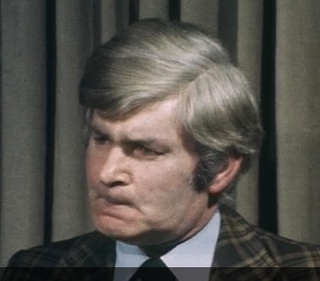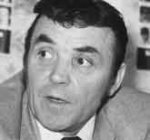
The Ulster Volunteer Force (UVF) is an Ulster loyalist paramilitary group. Formed in 1965, it first emerged in 1966. Its first leader was Gusty Spence, a former British Army soldier from Northern Ireland. The group undertook an armed campaign of almost thirty years during The Troubles. It declared a ceasefire in 1994 and officially ended its campaign in 2007, although some of its members have continued to engage in violence and criminal activities. The group is a proscribed organisation and is on the terrorist organisation list of the United Kingdom.
A loyalist feud refers to any of the sporadic feuds which have erupted almost routinely between Northern Ireland's various loyalist paramilitary groups during and after the ethno-political conflict known as the Troubles broke out in 1969. The feuds have frequently involved problems between and within the Ulster Defence Association (UDA) and the Ulster Volunteer Force (UVF) as well as, later, the Loyalist Volunteer Force (LVF).
The Volunteer Political Party (VPP) was a loyalist political party launched in Northern Ireland on 22 June 1974 by members of the then recently legalised Ulster Volunteer Force (UVF). The Chairman was Ken Gibson from East Belfast, an ex-internee and UVF chief of staff at the time. The success of the Ulster Workers Council Strike had shown some UVF leaders the political power they held and they sought to develop this potential further. The UVF had been banned by the Government of Northern Ireland in 1966, but was legalised at the same time as Sinn Féin by Labour Secretary of State Merlyn Rees in April 1974 in order to encourage a political path for Loyalist and republican paramilitary groups.

The Ulster Workers' Council (UWC) strike was a general strike that took place in Northern Ireland between 15 May and 28 May 1974, during "the Troubles". The strike was called by unionists who were against the Sunningdale Agreement, which had been signed in December 1973. Specifically, the strikers opposed the sharing of political power with Irish nationalists, and the proposed role for the Republic of Ireland's government in running Northern Ireland.
The Ulster Workers' Council was a loyalist workers' organisation set up in Northern Ireland in 1974 as a more formalised successor to the Loyalist Association of Workers (LAW). It was formed by shipyard union leader Harry Murray and initially failed to gain much attention. However, with the full support of the Ulster Defence Association (UDA) the UWC became the main mobilising force for loyalist opposition to power-sharing arrangements.
Billy "Hutchie" Hutchinson is an Ulster Loyalist politician serving as the leader of the Progressive Unionist Party (PUP) since 2011. He was elected to Belfast City Council in the 1997 elections. Hutchinson was a Member of the Northern Ireland Assembly (MLA) for Belfast North from 1998 to 2003. He lost his assembly seat in 2003, and his council seat in 2005. He returned to the council in 2014 and was re-elected in 2019. Before this he had been a member of the Ulster Volunteer Force (UVF) and was a founder of their youth wing, the Young Citizen Volunteers (YCV).

Augustus Andrew Spence was a leader of the paramilitary Ulster Volunteer Force (UVF) and a leading loyalist politician in Northern Ireland. One of the first UVF members to be convicted of murder, Spence was a senior figure in the organisation for over a decade.

John Dunlop McKeague was a Northern Irish loyalist and one of the founding members of the paramilitary group the Red Hand Commando in 1970. Authors on the Troubles in Northern Ireland have accused McKeague of involvement in the Kincora Boys' Home scandal but he was never convicted. He was shot dead by the Irish National Liberation Army (INLA) in Belfast in January 1982.

John "Jackie" McDonald is a Northern Irish loyalist and the incumbent Ulster Defence Association (UDA) brigadier for South Belfast, having been promoted to the rank by former UDA commander Andy Tyrie in 1988, following John McMichael's killing by the Provisional IRA in December 1987. He is also a member of the organisation's Inner Council and the spokesman for the Ulster Political Research Group (UPRG), the UDA's political advisory body.
Andrew Tyrie is a Northern Irish loyalist paramilitary leader who served as commander of the Ulster Defence Association (UDA) during much of its early history. He took the place of Tommy Herron in 1973 when the latter was killed, and led the organisation until March 1988 when an attempt on his life forced him to resign from his command.

Tommy "Tucker" Lyttle, was a high-ranking Ulster loyalist during the period of religious-political conflict in Northern Ireland known as "the Troubles". A member of the Ulster Defence Association (UDA) – the largest loyalist paramilitary organisation in Northern Ireland – he first held the rank of lieutenant colonel and later was made a brigadier. He served as the UDA's spokesman as well as the leader of the organisation's West Belfast Brigade from 1975 until his arrest and imprisonment in 1990. According to journalists Henry McDonald and Brian Rowan, and the Pat Finucane Centre, he became a Royal Ulster Constabulary (RUC) Special Branch informer.

Frankie Curry was a Northern Irish loyalist who was involved with a number of paramilitary groups during his long career. A critic of the Northern Ireland peace process, Curry was killed during a loyalist feud.
Alex Kerr was a Northern Irish former loyalist paramilitary. Kerr was a brigadier in the Ulster Defence Association (UDA)'s South Belfast Brigade. He is no longer active in loyalism.

Billy Mitchell was a community activist and member of the Progressive Unionist Party. Mitchell was a leading member of the loyalist Ulster Volunteer Force (UVF) and served a life sentence for his part in a double murder. He later abandoned his UVF membership and took up cross-community work.
Clifford Peeples is a self-styled pastor in Northern Ireland who has been associated with Ulster loyalist activity. Peeples has been a member of the Ulster Volunteer Force (UVF), the Loyalist Volunteer Force (LVF) prisoners' spokesman and leader of the Orange Volunteers.
William Elliot was a former Northern Irish loyalist who served as brigadier of the Ulster Defence Association's (UDA) East Belfast Brigade in the 1980s.
Samuel Smyth was a Northern Irish loyalist activist. A founder member of the Ulster Defence Association (UDA) he was the early public face of the movement as the organisation's spokesman, and he later became involved in the group's attempts to politicise. He was assassinated by the Provisional IRA as part of the Troubles. Author Steve Bruce described Smyth as the "sometime editor of the Ulster Militant and a loose cannon who enjoyed an exciting and erratic relationship with the UDA".

The Young Citizen Volunteers of Ireland, or Young Citizen Volunteers (YCV) for short, was a British civic organisation founded in Belfast in 1912. It was established to bridge the gap for 18 to 25 year olds between membership of youth organisations—such as the Boys' Brigade and Boy Scouts—and the period of responsible adulthood. Another impetus for its creation was the failure of the British government to extend the legislation for the Territorial Force—introduced in 1908—to Ireland. It was hoped that the War Office would absorb the YCV into the Territorial Force, however such offers were dismissed. Not until the outbreak of World War I did the YCV—by then a battalion of the UVF—become part of the British Army as the 14th Battalion of the Royal Irish Rifles.
The Orange Volunteers (OV) was a loyalist vigilante group with a paramilitary structure active in Northern Ireland during the early 1970s. It took its name from the Orange Order, from which it drew the bulk of its membership.
Christopher Hudson is an Irish former trade union activist who subsequently became a Unitarian minister in Northern Ireland. During the final years of the Troubles Hudson became prominent as a negotiator between the loyalist Ulster Volunteer Force (UVF) and the Irish government and played a key role helping to deliver the Northern Ireland peace process.









